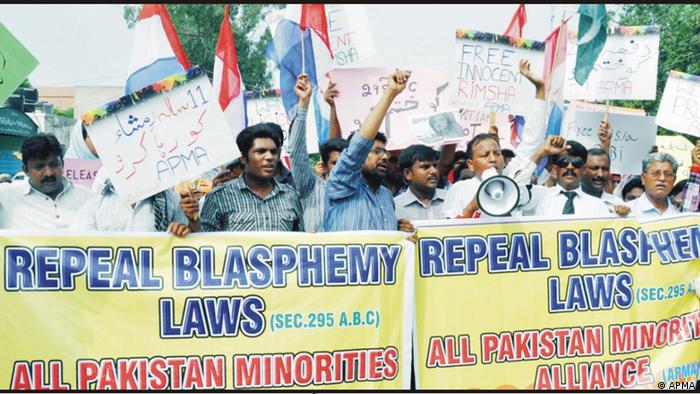
The Obama administration has decided to blacklist as a terrorist organization the Haqqani network, the militant organization responsible for some of the deadliest attacks against American troops in Afghanistan, several American officials said late Thursday.
The decision, which is expected to be announced as early as Friday, culminates nearly two years of spirited debate inside the administration that reached a peak in the past month under the pressure of a Congressional reporting deadline this Sunday.
Several State Department and military officials argued that designating the organization would help strangle the group’s fund-raising activities in countries like Saudi Arabia and United Arab Emirates and pressure Pakistan to open a long-expected military offensive against the militants.
Many other senior officials, including several in the White House, expressed deep reservations that blacklisting the group could further damage badly frayed relations with Pakistan, undercut peace talks with the Taliban and possibly jeopardize the fate of Sgt. Bowe Bergdahl, the only American soldier known to be held by the militants.
But in the past few days, supporters of designating the group apparently eased most concerns or put forward contingencies to mitigate the risks and potential consequences.
“This shows that we are using everything we can to put the squeeze on these guys,” said one administration official who was involved in the process, and who spoke on the condition of anonymity because the decision has not been formally announced.
Another senior administration official said the designation “is a very strong signal of our resolve to combat the Haqqanis.”
Spokeswomen for the National Security Council and State Department declined to comment on the decision, but four administration officials said late Thursday that the government was going ahead with the designation.
Critics have contended that a designation by the Treasury Department or the United Nations could achieve largely the same result as would adding the network to the much more prominent State Department list, with far fewer consequences.
But many senior counterterrorism officials as well as top American military officers, including Gen. John R. Allen, commander of American and NATO troops in Afghanistan, have said that designating the organization should be a top priority.
“F.T.O. designation could reduce a critical capability of the Haqqani Network by increasing the cost of doing business, reducing access to capital, and constraining the network’s financial resources, thereby limiting their freedom to operate in a local, regional, and international context,” Jeffrey Dressler, senior Afghanistan analyst for the Institute for the Study of War, a research organization here said in a paper issued this week, referring to foreign terrorist organizations.
Mr. Dressler said the Haqqani network’s business interests stretch from Afghanistan and Pakistan, to the Persian Gulf, and include car dealerships, money exchanges and construction companies, import-export operations, and smuggling networks.
Since 2008, Haqqani suicide attackers have struck the American Embassy and Indian Embassy in Kabul, Afghanistan, as well as the headquarters of the NATO-led International Security Assistance Force and hotels and restaurants there.
American officials confirmed last week that a senior member of the Haqqani family leadership, Badruddin Haqqani, the network’s operational commander, was killed recently in a drone strike in Pakistan’s tribal areas.
Pressure in Congress to add the group to the terrorist list has grown. “The Haqqani network is engaged in a reign of terror,” Representative Mike Rogers, a Michigan Republican who is chairman of the House Intelligence Committee, said this year. “Now is the time for action, not simply paperwork and talk.”
With virtually unanimous backing, Congress approved legislation that President Obama signed into law on Aug. 10 giving Secretary of State Hillary Rodham Clinton 30 days to determine whether the Haqqani network is a terrorist group, and report her decision to lawmakers by Sunday, Sept. 9, coincidentally three days after the end of the Democratic National Convention.
Critics of designating the group a terrorist organization say the action could drive a wedge between the United States and Pakistan, just as the countries are gingerly recovering from months of grueling negotiations to reopen NATO supply routes. Pakistan closed the routes through its territory after an allied airstrike near the Afghan border last November killed 24 Pakistani soldiers.
These same critics say such a move would appear to bring Pakistan a step closer to being designated as a state sponsor of terrorism. American officials say Pakistan’s main spy agency, the Inter-Services Intelligence Directorate, is secretly aiding the insurgents. Pakistani officials have said that the agency maintains regular contact with the Haqqanis, but deny that it provides operational support.
Two Pakistani officials said last week that the decision was “an internal American issue.” American analysts believe Pakistan would be reluctant to publicly protest the designation, because to do so would substantiate American beliefs that Pakistan supports the Haqqanis.
Critics also voiced concern that designating the Haqqani network could undermine peace talks with the Taliban and complicate efforts to win the release of Sergeant Bergdahl.
Those talks were suspended by the insurgents in March, largely over a delayed prisoner swap for Sergeant Bergdahl, who has been held by the Haqqani network since 2009. The United States would have released five insurgents from Guantánamo Bay, Cuba, to win his release.




